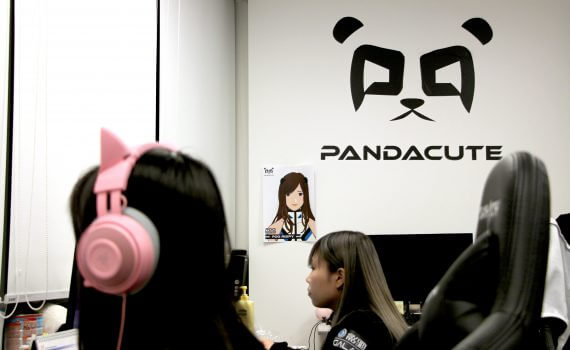The Young Reporter

Tournament needed for future development of Hong Kong's esports industry
- 2018-12-10
- Business
- The Young Reporter
- By: Erica Chin、Kobie Li、Elly WuEdited by:
- 2018-12-10
Hong Kong esports athlete, Lo Tsz-kin won a gold medal at the Asian Games 2018. However, since esports is not recognised as an official sport in Hong Kong, he is not eligible to receive the $400,000 cash award as other gold medalists under the Athlete Incentive Award Scheme. Hong Kong's esports industry has been developing slowly compared to other countries, experts say hosting mature tournaments is the key to the industry's future development. The city has a large amount of highly skilled players, yet the industry had started late and the development of the local esports industry is slow when compared to other regional countries which started around the same time as us like Japan and Vietnam, said Marbles So, manager of Kowloon Estadium, a company which provides practice venue and management for professional esports players. According to a report by Cyberport published in 2017, Hong Kong has more than 300,000 esports players. Professional esports teams have been set up by esports management companies such as Kowloon Estadium and Hong Kong Esports Limited. Many professional esports players, however, opted for developing their career outside of Hong Kong, mainly in mainland China and Taiwan. In 2012, Hong Kong League of Legends player Lau Wai-kin, who goes by Toyz, had won the Season 2 World Championship with his Taiwan-based team, Taipei Assassins. The Hong Kong government has been supportive of esports in recent years. In 2017, the government funded $35 million in the Hong Kong Esports Festival, the first esports and music festival organised by the Tourism Board. Acknowledging "tremendous potential" in the industry, Financial Secretary Paul Chan announced in the 2018 budget that the Hong Kong government will allocate $100 million to Cyberport for its development of an arcade for esports competitions and digital entertainment. Still, compared to the global esports …

Chief Health Inspector depicted Mong Kok turmoil as "chaos"
- 2018-12-07
- Politics
- The Young Reporter
- By: Cara LiEdited by: Anna Kam
- 2018-12-07
Prosecutors accuse four people of taking part in riot, during the Mong Kok unrest trial. The trial began at Hong Kong's High Court after jury selection on November 28, 2018. Chief Health Inspector Lai Yau-yu, of the Food and Environmental Hygiene Department described the clash between the police-force and citizens at a Lunar New Year night in 2016 as "chaotic". Mr. Lai, a witness for the prosecution, notified the court that the Food and Environmental Hygiene Department planned to coordinate with police officers to maintain public order in Mong Kok on February 8, 2016. According to Mr. Lai, he received a message from a police officer, stating Hong Kong Indigenous, a localist group, would gather people to support food hawkers in Sham Shui Po or Mong Kok. "I saw a group of people standing at the corner of Portland Street and Shantung Street. They were about to put on blue jackets," Mr. Lai said."'Hong Kong Indigenous' were printed on those jackets." The Inspector added that the group of people walk into an alley of Portland Street after putting on jackets. He saw that two food trolleys were pulled out by hawkers from the alley, followed by a handful of people in blue jackets. They pulled the trolleys to Argyle Street. A lockdown happened in Mong Kok during a Lunar New Year night in 2016 - a police officer fired two gun shots while some protesters threw bricks at the police-force and set fire. The clash began after protesters intended to stop a clampdown on hawkers. Edward Leung Tin-kei, a former spokesperson of Hong Kong Indigenous, along with three others, namely Lee Nok-man, Lam Ngo-hin and Yung Wai-ip, are facing charges of participating in riot. They all denied the charge. "I was too far away from the crowd that I could …


Hong Kong's news media faces practical challenges in face of global digitalisation
- 2018-10-12
- The Young Reporter
- By: Stephanie Ma、Hailey ManEdited by: Jade Li
- 2018-10-12
The traditional mass media in Hong Kong is slow to strategise its use of digital technologies compared to news outlets worldwide, media professionals said on October 6 at the 2018 European Study Tour Seminar organised by the Journalism Education Foundation. "Digitalisation has drastically transformed the international media landscape in recent years. Whilst a myriad of European news organisations have already undergone major structural transformations, most media organisations in Hong Kong have not responded to these trends," Raymond Li, a senior lecturer of the Hong Kong Baptist University's Journalism Department said. Attended by tens of journalism students from local universities, the post-tour event was centred mainly around reflective observations several media persons made after comparing the digital transformations of news organisations between Europe and Hong Kong. "Traditional news outlets in Hong Kong are very conservative when it comes to embracing digital transformation as the risk is often very big," said Siu Sai-Wo, CEO and Executive Director of Sing Tao News Corporation Limited. Mr. Siu stated vast differences in the operating mechanisms of online and print media as one of the risks media companies have to bear in case of investment failure. Now that is technology being more prioritised over content, new media journalists face more pressure to produce innovative online content, leading to a surge in churn rates amongst some media companies. Mr. Siu added that some companies also need to retrain employees who had only received conventional journalism training. Mr. Li believed that Hong Kong's media sector lacked an explicit digital development strategy as some still expect room for the traditional media to thrive. "When it comes to developing innovative new media products, we also lag behind in investment and expertise," he continued. South China Morning Post is one of the few companies that have started to incorporate breakthrough technologies …






